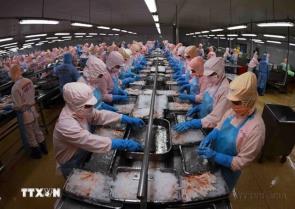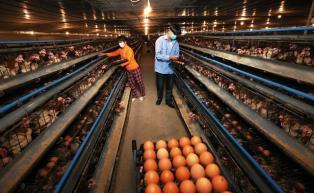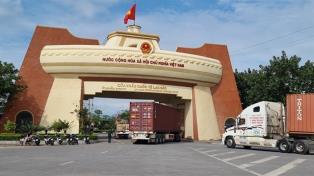As Việt Nam modernises its pork industry to improve food safety, deep-rooted habits and informal supply chains continue to challenge progress.
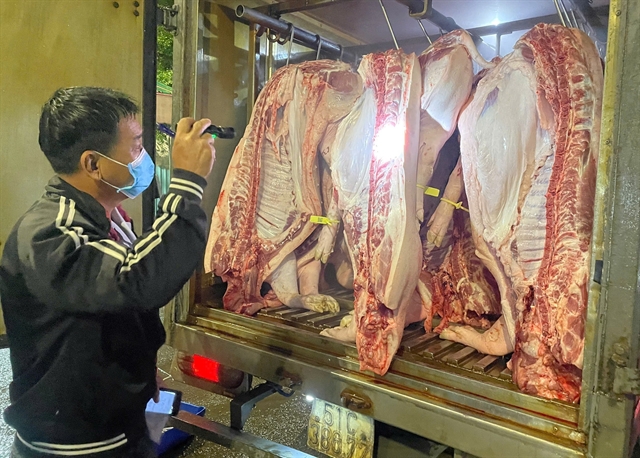
HÀ NỘI — As food safety becomes a growing concern in Việt Nam, one would expect consumers to embrace stricter hygiene standards. But in the case of pork, the country’s most consumed meat, a quiet paradox persists.
While chilled and frozen pork is safer and more traceable, the vast majority of Vietnamese families still prefer 'hot' meat: slaughtered in the early morning and sold within hours, never refrigerated.
Freshly slaughtered meat appears pink, soft and less processed. It's also slightly cheaper and matches the dawn-to-noon rhythm of wet market shopping, yet the pork chain is also vulnerable to hygiene lapses.
Though modern producers like Masan MEATLife and BAF Vietnam have built closed-loop systems – from bio-secure barns to European-standard slaughterhouses – such efforts only cover part of the market.
In HCM City, for instance, where daily pork consumption reaches around 10,000 pigs, only 70-80 per cent comes from modern supply chains. The rest – often called “uncontrolled” meat – slips through looser channels.
According to the Department of Livestock Production under the Ministry of Agriculture and Environment, demand for pork is rising, from 30kg/person in 2021 to more than 37kg in 2024.
Most consumers still buy pork that lacks proper chilling, packaging or traceability. Chilled and frozen pork combined make up just about 5 per cent of the market. This long-standing preference for warm meat lets small farms, informal slaughterhouses and unregulated transport keep running quietly.
The risks are clear. A study by the International Livestock Research Institute found salmonella contamination at traditional slaughter sites can reach 52 per cent – and up to 60 per cent once pork is transported through city streets on motorbikes.
Nguyễn Hữu Hoài Phú, deputy director of the HCM City Department of Agriculture and Environment, said: “The issue lies with small-scale farmers. There aren't many of them, but some use leftover waste from fields as animal feed, which makes the source unreliable and leads to unsafe pork.
“Even when pigs are raised and slaughtered properly, without cold-chain transport and storage, the risk of contamination remains high – especially during distribution to supermarkets and markets,” Phú was quoted as saying on tuoitre.vn.
Tightening control
Authorities are trying to tighten control.
The Ministry of Agriculture and Environment limits how long 'hot' meat can be sold (eight hours at ambient temperature) and requires chilled meat to be stored below five degrees and pulled from shelves within 72 hours.
Supermarkets follow these rules strictly, backed by barcodes, metal detectors and recall policies. But at wet markets, once a pig body is chopped into smaller cuts, its traceability ring often vanishes.
Efforts to shift habits are also gaining ground.
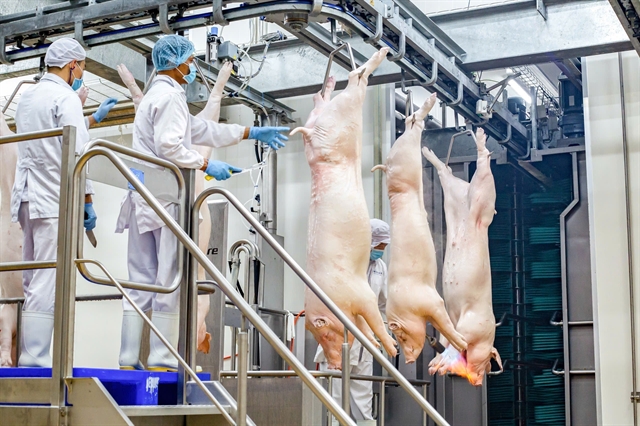
BAF Việt Nam’s 'Vegetarian-fed pig' model uses probiotics instead of antibiotics and tracks animals through certified slaughter plants. MEATDeli’s pork line, certified by the British Retail Consortium, employs CO₂ stunning, vacuum sealing and shelf-life monitoring. Packs are recalled if unsold after 72 hours.
Still, the gap between policy and practice is wide. Local inspectors, often under-resourced, must check paperwork, sample meat and even destroy entire herds if banned substances are found.
“Entering small farms to collect samples is often difficult,” said Deputy Head of the Livestock Division under the Đồng Nai Sub-Department of Livestock Production and Animal Health Trần Minh Thành.
Police intervention is sometimes needed.
The challenge is not just about regulation – it’s about realigning consumer behaviour.
Veterans of the pork industry know that change must be gradual.
MEATDeli’s marketing pairs QR codes with images of open countryside to reassure shoppers that chilled meat is still fresh. Early adopters among urban families are proving that convenience and safety can trump ritual.
The habit of consuming 'hot' meat from traditional markets remains common, but experts recommend that consumers switch to branded chilled meat with clear traceability.
Deputy general director of BAF Vietnam Nguyễn Văn Minh proposed that all slaughtering should be carried out in certified facilities to eliminate manual abattoirs. He also said: “The Government should have a comprehensive master plan… and create policies that encourage livestock enterprises to invest in slaughterhouses and food processing plants, to ensure proper management and a safe food supply.” — VNS


